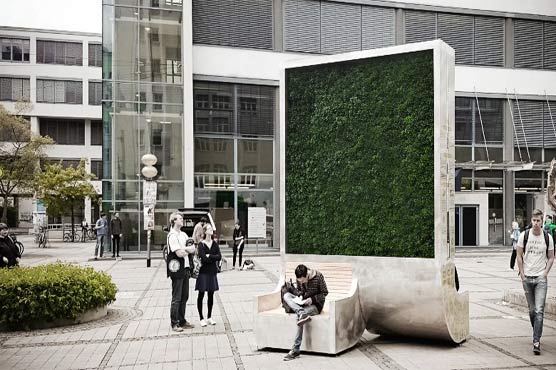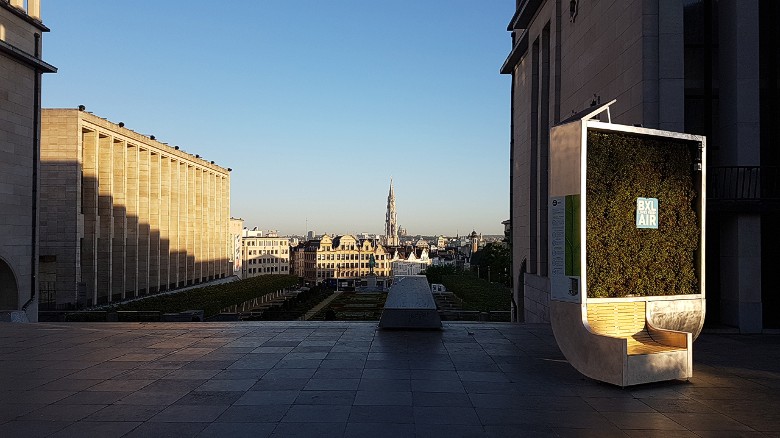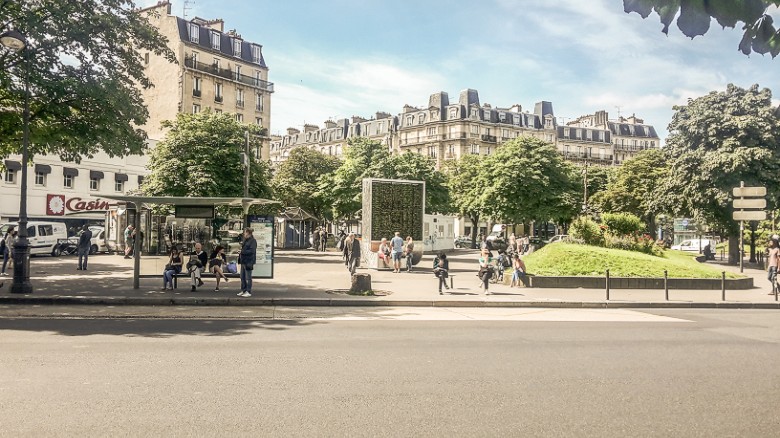CityTree: A man-made 'tree' with more environmental benefits than a forest

CityTree looks nothing like a tree but is equivalent to 275 actual trees
(Web Desk) - The ‘CityTree’ looks nothing like a tree; it has no branches, leaves or trunks. In fact, it is a rectangular tree, 4 meters tall, 3 meters wide and 2.19 meters deep. The CityTree, in fact, isn’t a tree at all. It is a moss culture.

Berlin based Green City Solutions came up with and implemented the idea of a CityTree and claims that it has the environmental benefits of 275 actual trees.
In today’s urban areas, air quality is quite a huge problem. In areas where air quality is monitored, more than 80% of the people are found to be exposed to air quality that is much higher than the standards of safety set by the WHO. It is predicted that by 2025, more than two thirds of the world’s population will be living in urban areas which is a good enough reason of urgency in cleaning up the air quality. One of the most common and well known methods of improving air quality is to plant trees. Trees are able to catch and absorb harmful particles and clean up the air of gases such as carbon dioxide and nitrogen while releasing oxygen into the air.

But planting thousands of trees in urban areas with low air quality is not a feasible option.
Green City Solution came up with a mobile installation called CityTree which removes pollutants from the air. CityTree is already popping up in Oslo, Paris, Brussels and Hong Kong.
Made with moss culture rather than leaves, the CityTree comes in two versions: with or without a bench. A display is also included for information of advertisements.

“Moss cultures have a much larger leaf surface than any other plants,” said Zhengliang Wu, co-founder of Green City Solutions. “That means we can capture more pollutants.”
The huge surface of the moss can capture and remove dust particles, nitrogen dioxide and other harmful ozone gases from the atmosphere. CityTree comes with an installed Wi-Fi enable that measures the local air quality. CityTree is autonomous and requires very little maintenance. Solar panels provide electricity, while rainwater is collected in a reservoir and pumped into the soil. There are pollution sensors installed too which help measure the local air quality and give information about how effective the tree is.
Its creators say that each CityTree is able to absorb around 250 grams of particulate matter a day and contributes to the capture of greenhouse gases by removing 240 metric tons of CO2 a year.

"Our ultimate goal is to incorporate technology from the CityTree into existing buildings," Wu said.
Air pollution experts are skeptical about CityTree since getting the ambient air in contact with the tree is extremely difficult. Air from car exhausts, for example, disperses vertically a few kilometers into the air and so will not be able to make contact with the nearest CityTree.
CityTree inventors are aware of this and have a solution for it too, which is yet to be implemented. They are working on a ventilation system that creates airflow and gets the pollution to the tree.

